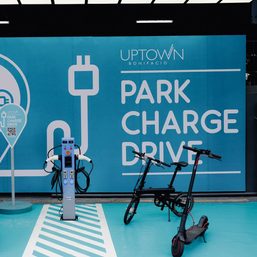SUMMARY
This is AI generated summarization, which may have errors. For context, always refer to the full article.

Toyota Motor and smaller Japanese automakers Subaru and Mazda Motor have each committed to developing new engines tailored to electrification, they said in a joint statement on Tuesday, May 28.
“With these engines, each of the three companies will aim to optimize integration with motors, batteries, and other electric drive units,” the companies said in the statement, pledging to make more compact engines that will allow for lower hoods.
Toyota, which has benefited from an uptake of petrol-electric hybrids in markets such as the US after drivers cooled on electric vehicles, hopes a more compact engine will help revamp vehicle design by saving space under the hood.
“If it is cool, it will sell. Therefore, profit will increase,” Chief Technology Officer Hiroki Nakajima told reporters on Friday at the Fuji Speedway circuit.
“If it’s not cool, nobody will buy it.”
The announcement is the latest example that showcases Toyota’s close ties with Subaru and Mazda. Toyota owns about a fifth of Subaru and roughly 5% of Mazda.
The three automakers said in the statement their efforts would help decarbonize internal combustion engines by making them compatible with alternative fuel sources such as e-fuels and biofuels.
Automakers face tougher emissions standards in markets such the European Union where policymakers are pursing a set of rules known as “Euro 7” that they hope to apply to cars and vans from 2030. They plan to ban sales of new CO2-emitting cars from 2035.
Toyota has been following a “multi-pathway” approach to carbon neutrality by catering to differing needs in each of its markets through offering vehicles with a range of powertrains.
It sold about 2.4 million vehicles over January-March of which nearly two-fifths were petrol-electric hybrids. Plug-in hybrid, fuel-cell and all-battery electric vehicles together accounted for just 2.9%.
Chairman Akio Toyoda in January said EVs would reach a global auto market share of 30% at most, with hybrids, hydrogen fuel-cell cars and fuel-burning vehicles making up the rest. – Rappler.com
Add a comment
How does this make you feel?




There are no comments yet. Add your comment to start the conversation.